How can we talk about the issues that are affecting people’s lives in a way that does not alienate people on different ends of the political spectrum? How do we find the “Purple Zone”?
This year, Pittsburgh Theological Seminary will host its 40th annual Henderson Lectures. The theme of this year’s conference is: “Faithful Resistance: Choosing Christ Over Empire.” Dr. Diana Butler Bass will keynote, and the Rev. Dr. Leah D. Schade will lead two, large-group workshops.
In this post, the Rev. Erik Hoeke, director of Continuing Education at Pittsburgh Theological Seminary, has a conversation with Dr. Schade, associate professor of preaching and worship at Lexington Theological Seminary, about the reasons for choosing this year’s theme and about the challenges of ministry in “purple” congregations—those in which congregants hold significantly differing political views.
Please note: this blog post was adapted from a real-time conversation. Watch the full video here:
Ministry in “Purple Churches” Amidst Political Polarization
Erik:
Oftentimes, as people who want to be “nice” to each other (be kind, get along), our tendency in churches is to minimize differences. “Let’s just pretend we don’t have divisions,” we think, “and things are going to be easier.” But in my own ministry, I’ve discovered that that this pretending doesn’t really solve anything. In fact, it only pushes down tension until it erupts in unhealthier ways. Even more dangerously, this avoidance gives more space for political and religious extremism to fester.
Still, embracing a strategy other than avoidance is more easily said than done. In some of my pastoral ministry, I felt like I was always walking on eggshells, wondering, “Is someone going to interpret an aspect of my sermon as me saying something political, even if that’s not the intent at all? What will happen if I mention this or that current event in a Bible study? If there’s disagreement among the group, is that going to lead to hard feelings? Are people going to leave the church over it?” I found myself wondering, “Can we even talk about how to live out our faith amid cultural and political realities without the whole church community just falling apart?”
Can we even talk about how to live out our faith amid cultural and political realities without the whole church community just falling apart?
I really wanted to find a way for my congregation to release some of that tension by talking about it in healthy ways—and hopefully also be a model for the rest of our community on how to engage differences honestly and lovingly as Christians. I heard Dr. Schade speak about her book, Preaching in the Purple Zone, on preaching in congregations where people have different political and theological convictions, and I bought the book immediately. One thing I love about the process she outlines is that it isn’t just about more persuasive rhetoric as a preacher; it’s about preaching in a way that hearers of the sermon are invited into a dialog that continues beyond that sermon. As a pastor, I found that incredibly helpful.
Especially as we’re heading into this contentious election season, I want to give congregations and ministry leaders language and tools to navigate these very challenges. I hope that we, as Christian communities, will be able to say: “Okay, we disagree about politics, or about social issues, but we’re united in our love for Christ, and we’re united in our desire to see Christ in one another.” I hope that congregations will come together to resist the types of extremism that are dehumanizing or even violent. I hope we can help resource other churches in the same way so that they can learn how to do this better.
We’re united in our love for Christ, and we’re united in our desire to see Christ in one another.
Leah:
I became interested in preaching, ministry, and social issues when I was a pastor serving “purple churches” in Pennsylvania. I was trying to figure out: “How can we talk about the issues that are affecting people’s lives in a way that does not alienate people on different ends of the political spectrum? How do we find the ‘Purple Zone?’” I wanted us to be able to first root ourselves in common biblical and theological values then move forward from there.
I have been surveying preachers in the United States since 2017 to find out what it’s been like for them to preach during this very divisive time in our nation’s history. With data from thousands of respondents through different political administrations, I’ve learned that dialogue helps to build bridges. In our current political milieu, however, dialog is anathema to political parties, because they are appealing only to their own bases. There is no interest in bridge building. In our research through the Wabash Grant, however, we found that the majority of congregants actually want to hear sermons and engage in dialog that helps them make sense of social issues on the basis of their faith. People really want the church to be a place where they can engage.
So, how can we do this? How can we overcome this sense of an emotional Cold War in our congregations, in which there’s silence on topics about which people really have a lot to say? I believe that the church needs to take a stand and say: “No—we resist this culture of division, and we choose to engage each other. We need to find common ground, because God cares about what happens to people’s lives. God cares about people’s well-being, people’s bodies, how we distribute goods and resources, and how we treat people. If God cares about this—and Scripture is very clear that God does—then we need to care as well.”
We need to find common ground, because God cares about what happens to people’s lives . . . . If God cares about this—and Scripture is very clear that God does—then we need to care as well.
To this end, I developed a method called the “sermon-dialog-sermon” process. As director of a research grant, I tested this method by teaching it to pastors and lay leaders in 10 congregations in West Virginia, Kentucky, and Ohio. We noticed really positive shifts, and I’m looking forward to bringing that wisdom from my research into the workshops I’ll be leading at the Henderson Conference.
My hope is that we help people understand how to engage constructively and compassionately in a way that honors the personhood of all of those who are engaged in this dialog. This models what things can be like not just in the church but in the wider society. When we choose to resist violence, rhetoric that dehumanizes people, and that emotional “Cold War,” instead engaging in healthy dialogue, we strengthen both the body politic and the Body of Christ. It takes some time, investment, and commitment on the part of congregational leaders, but I’m hoping congregations will find prophetic courage to open themselves up and host these dialogues in constructive ways.
Workshop #1: “How Can We Heal Our Divides? Approaches for Navigating Politics With the People We Love”
When we have these hard conversations, sometimes people get angry—they send angry e-mails, or they withhold their offerings, or they just leave. In this workshop, I’m going to share some moral frameworks put forward by Jonathan Hite in his book The Righteous Mind: Why Good People Disagree About Religion and Politics. When there are disagreements about public issues, people are operating from different moral frameworks and using different vocabulary. Without understanding this, it can seem like we’re talking past each other, or like we’re not even in the same world. When we learn what these different frameworks are, however, we can listen to someone we might disagree with politically and hear what’s important to them. Then, we can meet them on the level of their values and work to find common ground.
Workshop #2: “Preaching Across the Divide: Strategies for Sermons in the Election Season”
This workshop is going to be about preaching across the divide and giving strategies for preachers through the election season. I’ll highlight something that I call the dialogical lens for reading Scripture, which explores the ways Scripture models for us how to be in dialog with people we disagree with—in a faith setting—in order to discern God’s will. We’ll look at lectionary texts that are going to come up through the election season. I want preachers to be able to use this dialogical lens to say: “Scripture already opens the door for us to be in conversation. Scripture deals with difficult social issues like violence and migration, how we steward our resources and the land, and the way we treat people who are different from us. If the Bible opens that up for us, how can we use those insights to learn to be in community together today?”
Register for the 2024 Henderson Leadership Conference
We hope you will join us as we practice building bridges of dialogue for the health of our congregations and communities. In person and online attendance options are available.
For more information or to register, visit: https://www.pts.edu/henderson-2024
Made possible by an endowment established in honor of J. Hubert (Hub) Henderson, the Henderson Lectures and Leadership Conference on Church and Ministry is an annual scholarly event held at Pittsburgh Theological Seminary to educate, inspire, and equip both clergy and laity for the work of ministry in contemporary contexts. Please note that Dr. Bass’s lectures will *not* be recorded for later viewing; they will only be available for real-time viewing, in person and online. Dr. Bass’s lecture on Monday evening is free and open to the public; we hope you will join us!
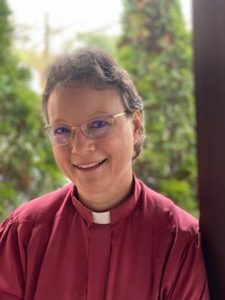
The Rev. Dr. Leah D. Schade is the associate professor of preaching and worship at Lexington Theological Seminary in Lexington, Ky. An ordained Lutheran minister (ELCA) for more than 20 years, Dr. Schade earned both her M.Div. and Ph.D. degrees from the Lutheran Theological Seminary at Philadelphia (now United Lutheran Seminary). She has pastored three Pennsylvania congregations in suburban, urban, and rural contexts. Dr. Shade has authored and edited six books, including Preaching in the Purple Zone: Ministry in the Red-Blue Divide (Rowman & Littlefield, 2019), which explores how clergy and congregations can address controversial social issues using nonpartisan, biblically-centered approaches and deliberative dialogue. Her forthcoming book, Preaching and Social Issues: Tools and Tactics for Empowering Your Prophetic Voice, will be published by Rowman & Littlefield in the fall of 2024. Dr. Schade received a $30,000 grant from the Wabash Center for Teaching and Learning in Theology and Religion to study deliberative dialogue in classrooms and congregations. She recently served as a consultant with the United Methodist Church Great Plains Conference training trainers in the sermon-dialogue-sermon method and developing an issue guide for congregations navigating denominational conflict regarding LGBTQIA+ inclusion. She has conducted longitudinal research on ministry, preaching, and social issues that has surveyed nearly 3,000 clergy and 1,000 laity since 2017. Dr. Schade received the Kentucky Council of Churches award in 2019 and is the EcoPreacher blogger for Patheos.
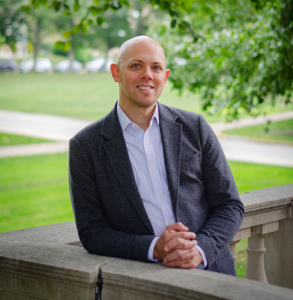
The Rev. Erik Hoeke is director of continuing education at Pittsburgh Theological Seminary. An ordained elder in The United Methodist Church, Erik has 14 years of experience pastoring Pennsylvania churches. Erik has also worked as an adjunct professor, writer, and strategist in higher educational spaces, and he is licensed in Mediation Skills Training for Religious Leaders through the Lombard Mennonite Peace Center. He holds a B.A. in English/journalism from Ohio Northern University, an M.Div. from Emory University, and a Th.M. (focus: moral theology) from the Boston College School of Theology and Ministry.
Read Next

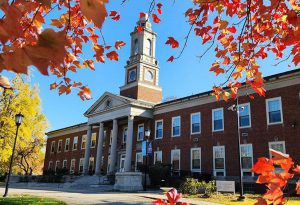
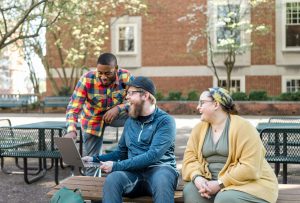

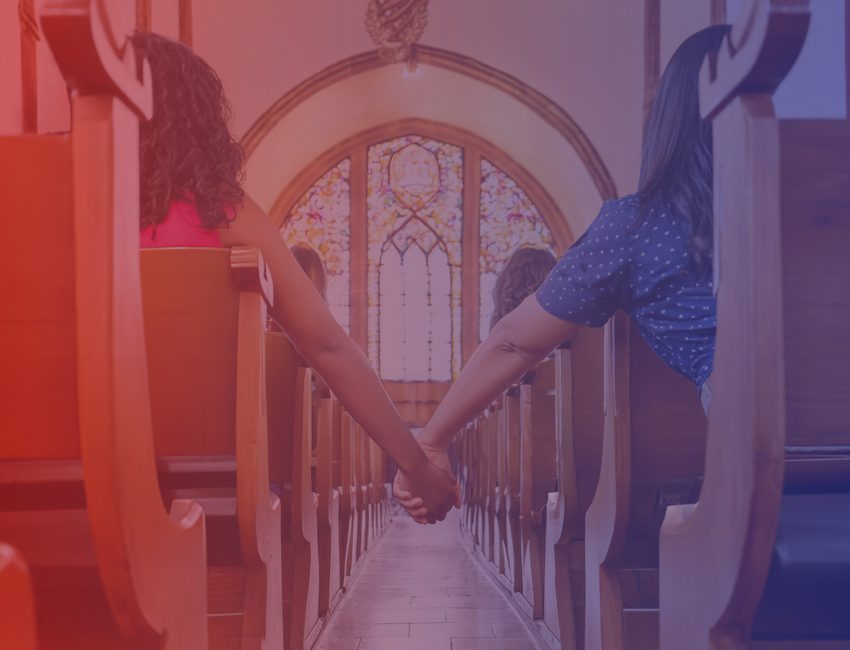

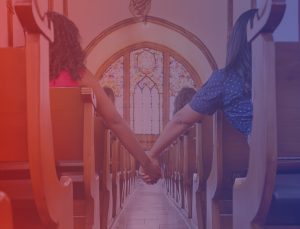
1 thought on “Finding the “Purple Zone”: Ministry Across Political Polarization”